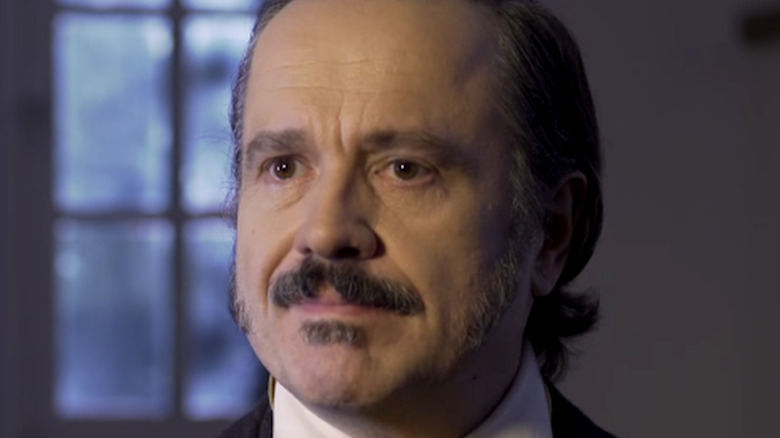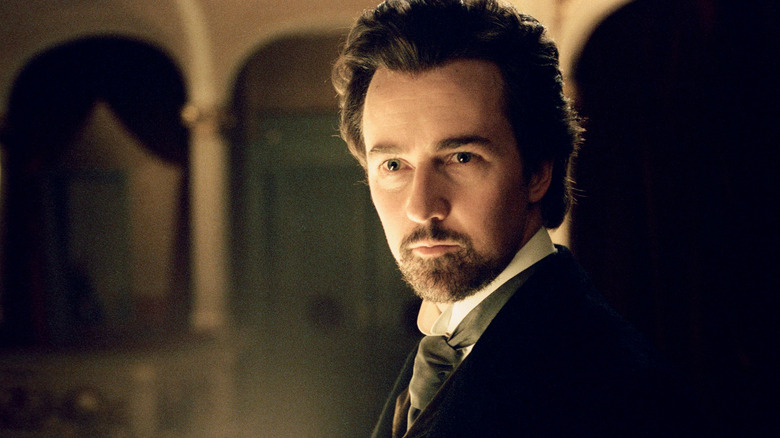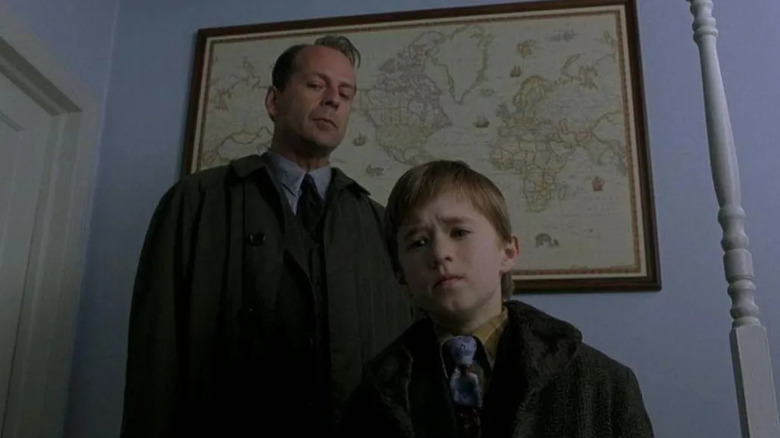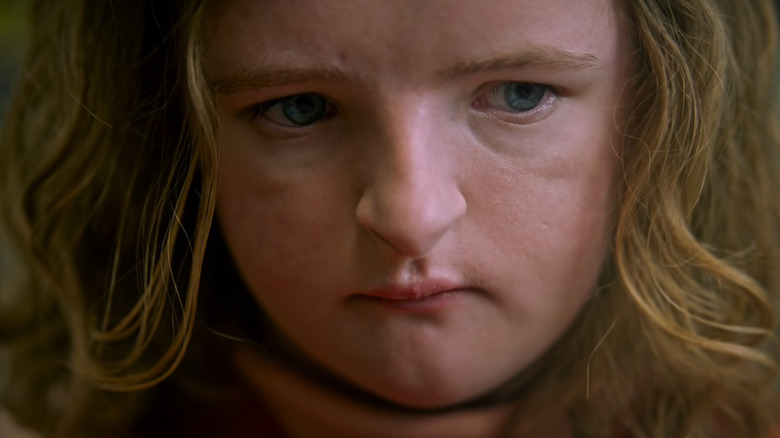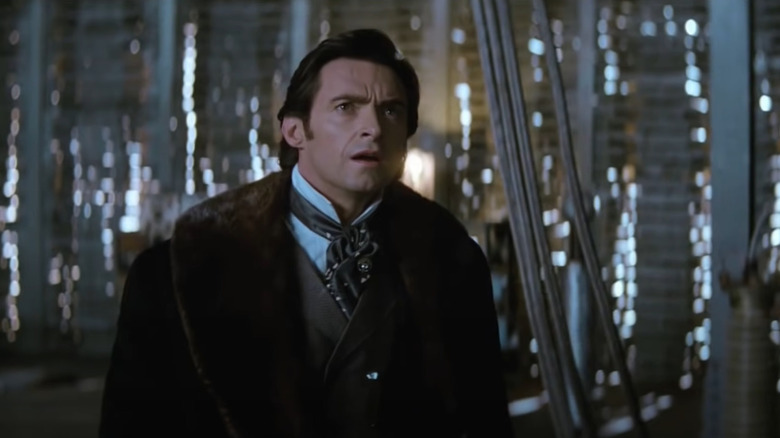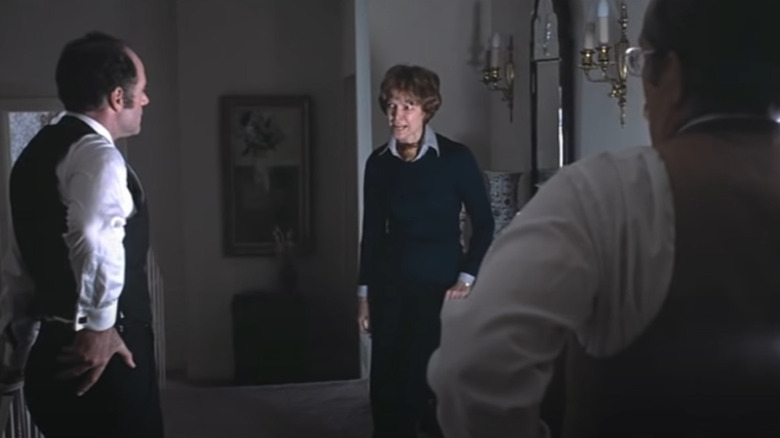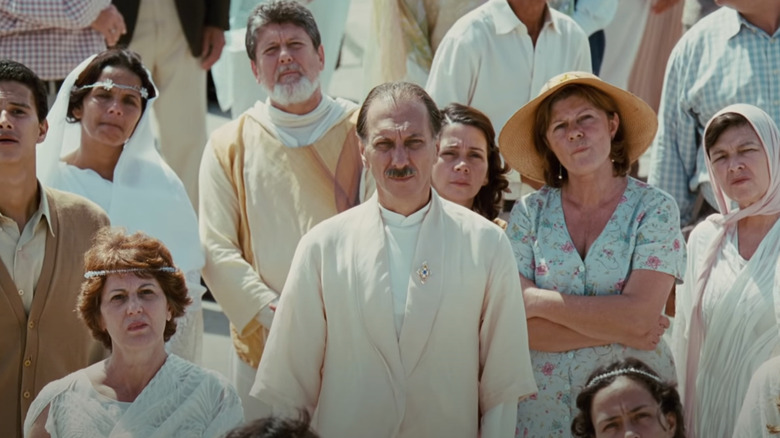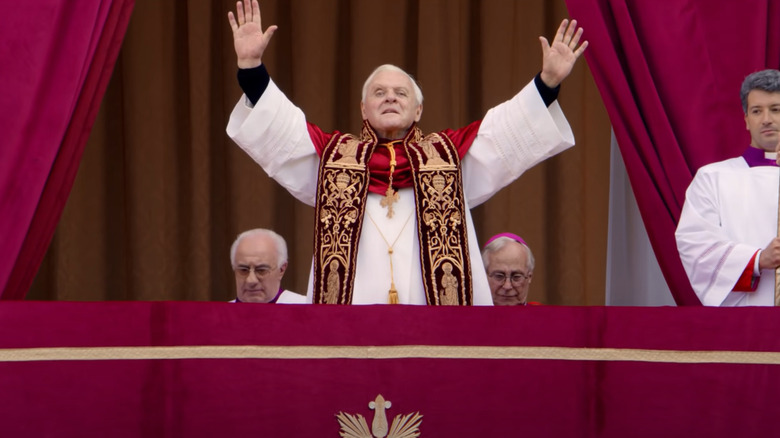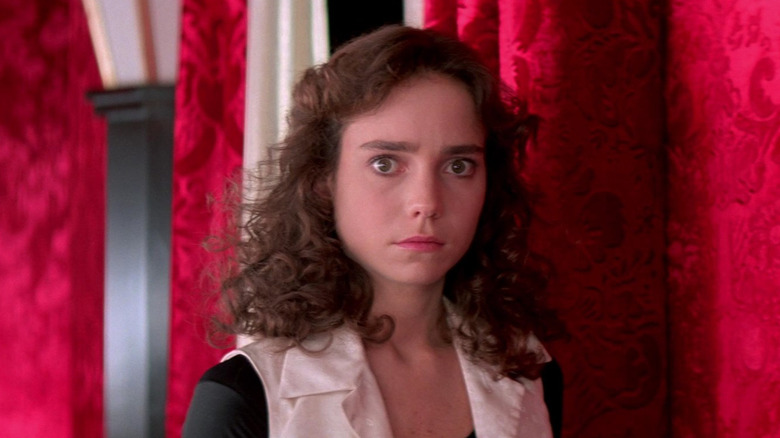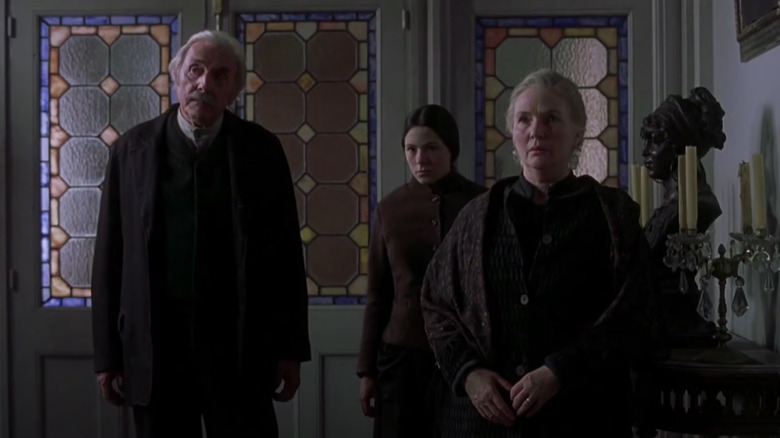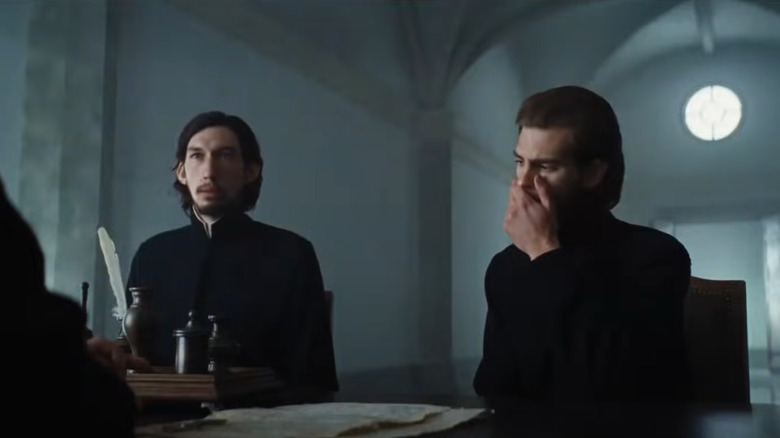10 Movies Like Kardec You Should Try Next
Created by Brazilian director Wagner De Assis, the 2019 drama "Kardec" delves into the history behind real life historical figure Hippolyte Rivail, better known as Allan Kardec, who is best known for becoming the founder of the spiritism movement. The film sees Rivail (Leonardo Medeiros) going about his life in the 19th century before becoming aware of the growing trend of table lifting, the name given to a method used to communicate with the deceased through a seance.
Initially dismissive, he becomes increasingly interested in the trend, hoping to debunk it after seeing a number of blatant tricks and illusions being passed off as genuine to make a profit off of the gullible. Before long, however, he grows to become a full believer in the practice, especially after a particularly personal experience. This leads him to double down, publishing his findings despite pushback from the Catholic church.
Below are ten of the best films like "Kardec" that offer a similarly spirited viewing experience. From portrayals of personal faith and conviction to explorations of communicating with the dead to the phenomenon of magic and illusions taking the world by storm during the time period of "Kardec," they are all well worth your time.
The Illusionist (2006)
Released around the same time as (and largely overshadowed by) Christopher Nolan's "The Prestige," this Neil Burger film is much too good to simply vanish like an assistant in a magic cabinet.
Set against the backdrop of a late 19th century Imperial Austria-Hungary, "The Illusionist" explores themes of real life magic and its relationship with the wider public institutions in society. A poor and new magician known as Eisenheim (Edward Norton) becomes a rising sensation in Vienna for his enthralling illusions and showmanship. After a visit to one of his shows by members of the royal family, he becomes smitten with the soon to be married Duchess, Sophie Jessica Biel). She feels the same way, with the forbidden love becoming even more dangerous as her soon-to-be-husband has a reputation for violence.
As the story unfolds through a series of flashbacks, all recounted by the Chief of the Vienna police Walter Uhl (Paul Giamatti), he details Eisenheim's dramatic escalation of his powers. Following a high profile murder with no known perpetrator, Eisenheim becomes increasingly fascinated with the art of necromancy, even going so far as to perform the stunt at a number of his shows. Tensions flare when a member of the royal family catches wind of his new routine; threatened with imprisonment by the royal family, Eisenheim is forced to rely on every trick up his sleeve to evade capture.
The Sixth Sense (1999)
One of the first efforts from a filmmaker who would come to be known for his audience-baiting twists and turns, few were expecting much from this under-the-radar M. Night Shyamalan thriller back in 1999. The film became an absolute phenomenon, with people whispering "I see dead people" in mixed company, staring down anybody who would dare spoil the film's key revelation.
After child psychologist Malcolm Crowe (Bruce Willis) skirts death at the hands of a former patient (Donnie Wahlberg), he's fully recovered and working on a new case. This time it's a young boy named Cole (Haley Joel Osment) who is suffering from disturbing hallucinations, much like Malcolm's former student. Terrified by what he's seeing, which he believes to be the spirits of the dead roaming among the living, Cole has become completely isolated from those around him.
Malcolm spends much of the film trying to rationalize Cole's visions, eventually admitting defeat and coming to believe that what Cole is seeing could be real. From there, he tries to help Cole use his ability for good and come to terms with living a life in which he can see what lies beyond. With one of the most shocking endings of all time, "The Sixth Sense" will keep you on the edge of your seat — until the twist makes you fall off it.
Hereditary (2018)
While supernatural lore is often the bread and butter for horror, "Hereditary" doesn't simply use the concept for cheap throwaway exposition, instead weaving it into the entire narrative. One of the most successful films by film distributor A24, this psychological horror nightmare is only matched in its exploration of the paranormal by its truly grisly violence.
After suffering the death of a close family member from old age, a family loses another to a horrific accident. Out of desperation and grief, they learn how to perform a seance. The ritual goes horribly off-the-rails, with unintended results that have a profound impact on everyone involved. While it is in a different genre than films like "Kardec," fans who are intrigued by films that similarly focus on communicating with the dead, and aren't afraid of a film with some truly intense visuals, should check out "Hereditary."
The Prestige (2006)
Yin to the "Illusionist" yang, Christopher Nolan's magic act takes a similarly dark look at magic and those who wield it.
Once again taking place during the 19th century, this time in the city of London during the Victoria era, the film tells the story of two magicians Hugh Jackman and Christian Bale) who surreptitiously work together on an act as fake audience members. After a tragic accident results in the wife the Jackman character drowning on stage, the duo split ways and a bitter rivalry forms. Both take time to hone their craft and create their own acts, and the two become caught up in a battle of showmanship and sabotage, with both men trying to destroy the other's career.
After a few near death experiences for both men, Bale's magician creates an act known as the transported man, in which he seemingly teleports on stage before the audience's eyes. Desperate to figure out how the trick is performed, his rival becomes determined to solve the mystery, no matter the cost. His mission leads him to seek out the help of Nikola Tesla (David Bowie), who he believes is the only one with the intelligence needed to create the unexplainable machine. This quest proves to go a bit too far, however, as obsession becomes desperation with deadly consequences.
The Exorcist (1973)
Considered by some to be the most frightening horror movie ever made, "The Exorcist" redefined the horror genre, became a cultural phenomenon to the point where some were urging women to not see it if pregnant, and has become an enduring cultural classic since its release.
While few hugely-profitable movies can escape a flood of sequels, the ones that followed "The Exorcist" largely fell flat (even if they did yield this moment), never quite managing to come close to what made the original so great.
Based on the William Peter Blatty novel of the same name, the film revolves around a young girl named Regan (Linda Blair) who begins to develop mysterious symptoms for which no physician can find a logical explanation. Her mother (Ellen Burstyn) becomes increasingly disillusioned with the doctors, unable to find a rational answer for the condition. At her wits' end and on the advice of one of the doctors treating Regan, her mother capitulates, seeking help to carry out an exorcism on her daughter.
The conflict between the science being at odds with the unexplainable is a core theme throughout the film; whatever you believe in, this film has plenty of scenes that will leave you calling its name for help.
Astral City: A Spiritual Journey (2010)
An earlier effort from Brazilian director Wagner De Assis (creator of "Kardec"), this film similarly explored the topics of spirituality and the afterlife in telling the tale of Andre Luiz(Renato Prieto), a successful doctor and father who suddenly passes away at dinner one night. Upon arriving in the life after death, he is shocked to find that he hasn't wound up in heaven, but instead a nightmarish and desolate realm inhabited by throngs of others who have died, all roaming as lost souls through an empty wasteland.
While trudging through the mud of this barren landscape, he is eventually taken by a beam of light that brings him to a city unlike any on Earth. This city does, however, have a complex society into which Andre is integrated. He learns that he must take a cold, hard look at himself and the sort of person he was while alive, appealing to the ministers that run the city by going on a journey of self-discovery. An imaginative take on the afterlife and what it means to be human, "Astral City: A Spiritual Journey" is a no-brainer for fans of "Kardec" and Wagner De Assis.
The Two Popes (2019)
Set during the papacy of Pope Benedict XVI (played here by Anthony Hopkins), "The Two Popes" is a drama heavily inspired by the events surrounding the Vatican leaks scandal, as well as Pope Benedict's subsequent resignation. As the name implies, he spends much of the film in and around the Vatican City discussing his plans with Cardinal Jorge Bergoglio (Jonathan Pryce), who is also on the verge of resigning from his position. The pair each discuss their own thoughts and motivations for wanting to leave their positions, though neither quite see eye to eye. The divide between progressive and traditional Catholics is deeply explored by the conversations the two men have, as well as some of the corruption scandals and troubled history that plagued the church at the time.
While the film doesn't have any supernatural elements or mysteries to unravel, and even has a fair bit or sarcastic comedy thrown in, it's a deep dive into the politics within the present day Catholic church, as well as its past. Audiences who enjoyed seeing the clashes between professor Rivail and the Catholic church in "Kardec" will likely be enthralled by this look inside the inner workings of the church.
Suspiria (1977)
Another terrifying classic from the '70s, "Suspiria" documents a young woman's journey through the bizarre and horrifying. Set in a respected German dance school, an American ballet student named Suzy Bannion (Jessica Harper) arrives amidst a number of mysterious events befalling its student body.
One student's disappearance raises suspicions among the other girls, who are oblivious to the fact that she had been brutally murdered. As the number of grisly deaths and disappearances rise, the viewer is left to wonder whether a crazed killer is roaming the halls of the school, or if it's something more otherworldly at play. The vibrant color palette employed by writer/director Dario Argento dominates the film's visual style — it is unique for a horror film, and further serves to provide a truly unnerving setting.
Another pick that tackles themes of the occult, "Suspiria" has become a lasting icon since its original release, and not without reason. Suzy's presence at the school as an outsider only makes it feel that much more unwelcoming, as she is thrust into trying to solve the mystery before she becomes the next victim. While it wasn't nearly as well received as the original, a remake was released in 2018, revisiting the core concept.
The Others (2001)
Set shortly after the conclusion of the Second World War, "The Others" tells the story of a woman named Grace (Nicole Kidman) and her two children living in a remote house on the island of Jersey. After her husband failed to return from the conflict, Grace hires three servants to help maintain the property and to help care for her children, both afflicted by a serious illness that makes them highly allergic to sunlight. This isn't the first time she's had to hire some help however, as the previous staff of servants mysteriously disappeared in the night without a trace.
Things quickly go from the unusual to the unexplainable immediately after the new servants begin. The children sense a presence in the house, which they refer to as the "others." A stylistically distinct slow burn, this Alejandro Amenabar-directed film takes the time to earn its frightening moments instead of relying on one jumpscare after another.
Silence (2016)
Another period piece that delves into the dealings of the Catholic church, the 2016 historical drama "Silence" was one of the more recent entries in Martin Scorsese's long career. Set during the 17th century, it follows a pair of Jesuit priests (Andrew Garfield and Adam Driver) on a mission to solve the mystery of what happened to their mentor, who has disappeared after a mission to Japan and has supposedly renounced his faith. Once the trio arrive in the island nation, they are shocked to discover that the Christians in the country are being subjugated and given an ultimatum: renounce their faith or be killed.
Despite being told from the point of view of the priests, "Silence" never picks a side of the conflict, instead portraying both sides from a neutral, matter-of-fact perspective. Both parties involved have clear motives, even if some of their actions are reprehensible. The concept of personal faith challenged by an outside influence, as well as perseverance and cultural preservation are all central to this underrated Scorsese effort.
